LET CHILDREN BE CHILDREN, NOT LABOURERS

Child labour has been an alarming issue since time immemorial, retarding the development of children and communities in Ghana. According to the recent Ghana Fisheries Recovery Report, there are over 2.7 million child labourers in Ghana, with the most significant percentage in the fisheries, cocoa, and artisanal mining sectors. Even though Ghana has put in place the National Plan of Action Phase II (NPA2) for the elimination of the worst forms of child labour in Ghana (2017-2021), which is geared towards achieving Sustainable Development Goal (SDG) 8.7, child labour in Ghana has proved stubborn to be made a thing of the past. It is still in practice, stealing children’s sanity, education and general development.
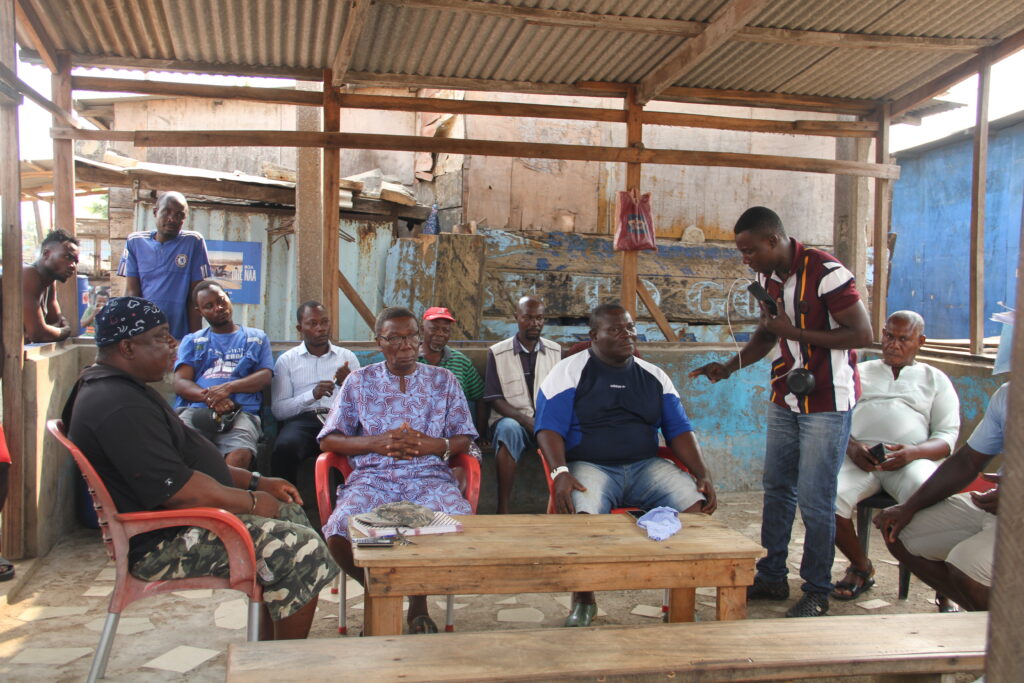
In the past week, Curious Minds held an outside broadcast in Chorkor and Tema Newtown to create awareness of the impact of child labour and trafficking in fishing communities along the coast of Accra. This not being its first visit to these communities, it was not much of a surprise getting to know the people are well aware of the troubling issue of child labour happening among them and its impact on the children. Regardless of this knowledge, parents and guardians allow their children and wards to go through hard labour, retarding their development. Parents acknowledged that their children’s recent development has been a result of sending them to school and freeing them from engaging in fishing activities.
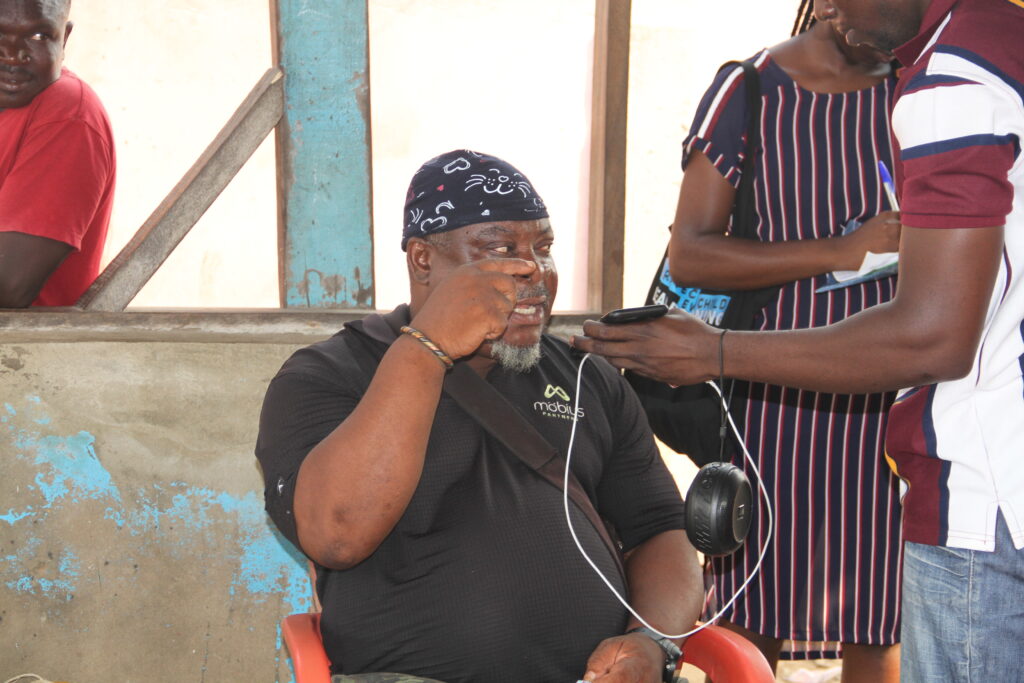
Interviewing Nii Odamtten, the chairman of the fishing association in Tema Newtown, he said children are prohibited from assisting with hard labour in their community because community leaders hold parents accountable, which has resulted in the reduction of child labour cases in Tema Newtown. Additionally, he refuted claims that Tema Newtown is a breeding space for child labour and instead pointed at Chorkor as the space for it.
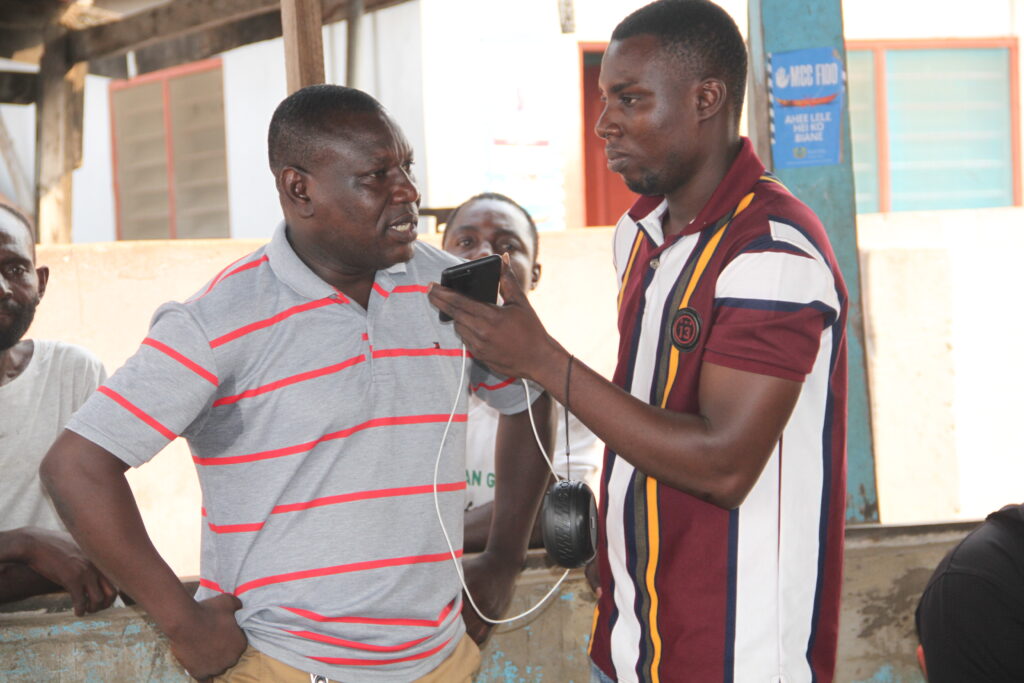
On the contrary, Ishmael Ashitey, Secretary for the Canoe Owners Association and secretary to the Chief fisherman at Tema Newtown, said parents in economic hardship have no control over surviving and, therefore, tend to involve children in hard labour to fend for themselves and their children. Children assist them in fishing activities such as fish smoking and mongering during hours of sleep and school, which affect their development. This encounter highlights both progress made and loopholes that still exist in curbing the issue of child labour in Tema Newtown.
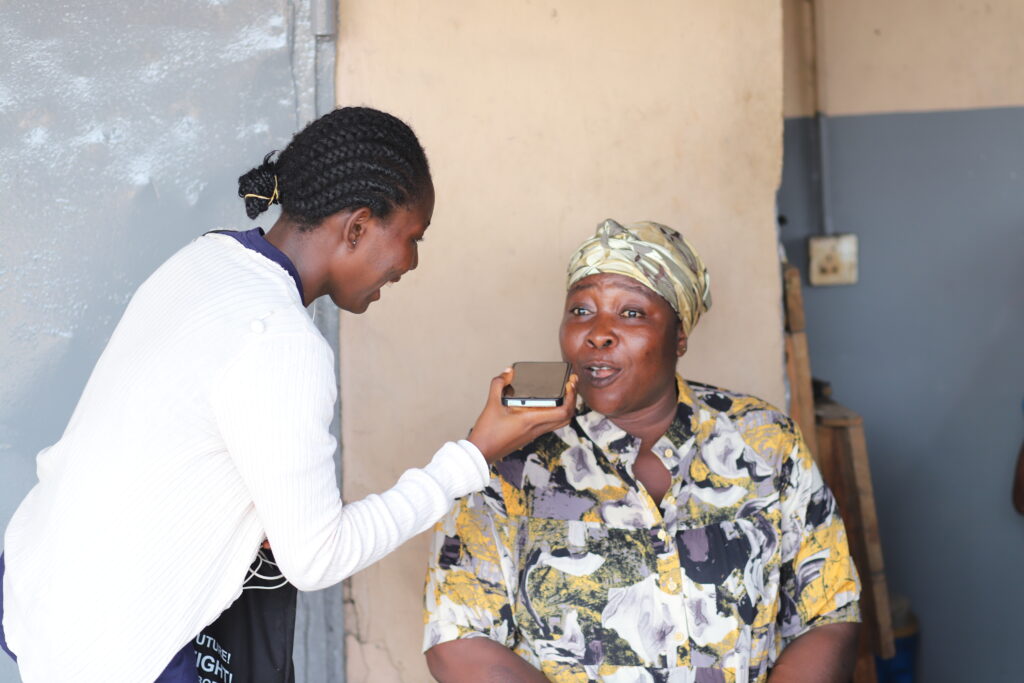
“On this matter, Chorkor is also a reflection of Tema Newtown”, says Naa Adorkor Gyamfi, the Queen Mother of Chorkor, as she complained bitterly about the impact of child labour on her community. She has pleaded on several occasions with parents to make formal or non-formal educational provisions for their children, of which some adhered. Nonetheless, some have refused, claiming child labour has been a medium through which rites of passage occur and continue to be a means of survival for generations. As such, these efforts will go down the drain with no heir, thereby continually involving their children in fishing activities, primarily burdensome and harmful to children’s health and development.
Even though tackling the issue of child labour has been a constant fight with parents and guardians, it came to light during the outside broadcasting that some children have been the cause of their ordeals, thus putting themselves through hard labour as a result of peer influences and the urge to fit into social classifications.
Naa Adorkor Gyamfi lamented this issue in these words, “Some children are interested in flashy lifestyles due to current exposure to social media and will do anything to meet that lifestyle. They involve themselves in fishing activities to afford the lifestyle they want at the blindside of their parents; it’s not solely the parents’ fault”. With this knowledge, it is obvious the journey to end child labour and trafficking will be a merry-go-round if social and behavioural change does not take place.
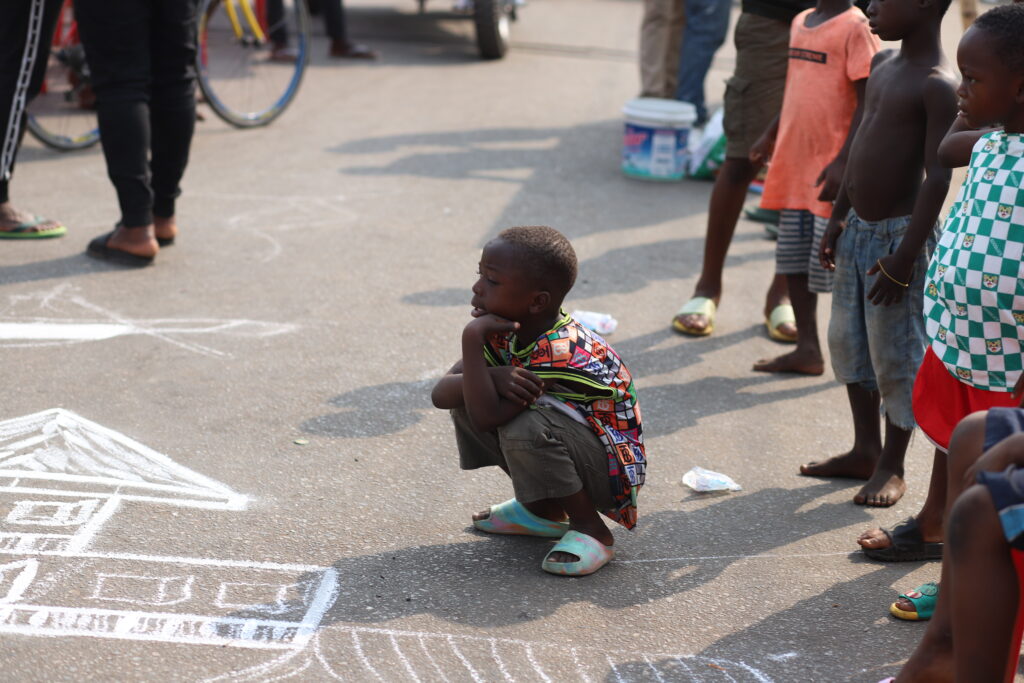
Meanwhile, it is also crucial to introduce an all-round solution, in that, as we encourage parents to take their children through education, we make work provisions for them after school. This will bring three-stone achievement: improve literacy, end child labour and trafficking and reduce unemployment. But if parents and guardians have to quit using children as labour, work alone to pay fees and later have to feed them even after school because of unemployment, then we can be rest assured that our message will go down the drain. In this light, some Children Against Child Labour and Trafficking (ChACLaT) Ambassadors have called on government, civil society organisations, nongovernmental organisations, and other private and corporate bodies to work hand in hand to provide jobs for young people.
Michelle Lamptey, a ChACLaT Ambassador, almost cried while speaking these words, “Child trafficking and labour is a reality, and it is interconnected with almost everything around us. Parents can’t control most of the things that happen in the lives of the children and youth in the community. We, therefore, want the government and leaders to commit to youth development. There is no employment even after graduation, so parents are worried and tired of their children demanding money and other needs from them”. The message from most perpetrators goes on: if you must be fed, you must work.
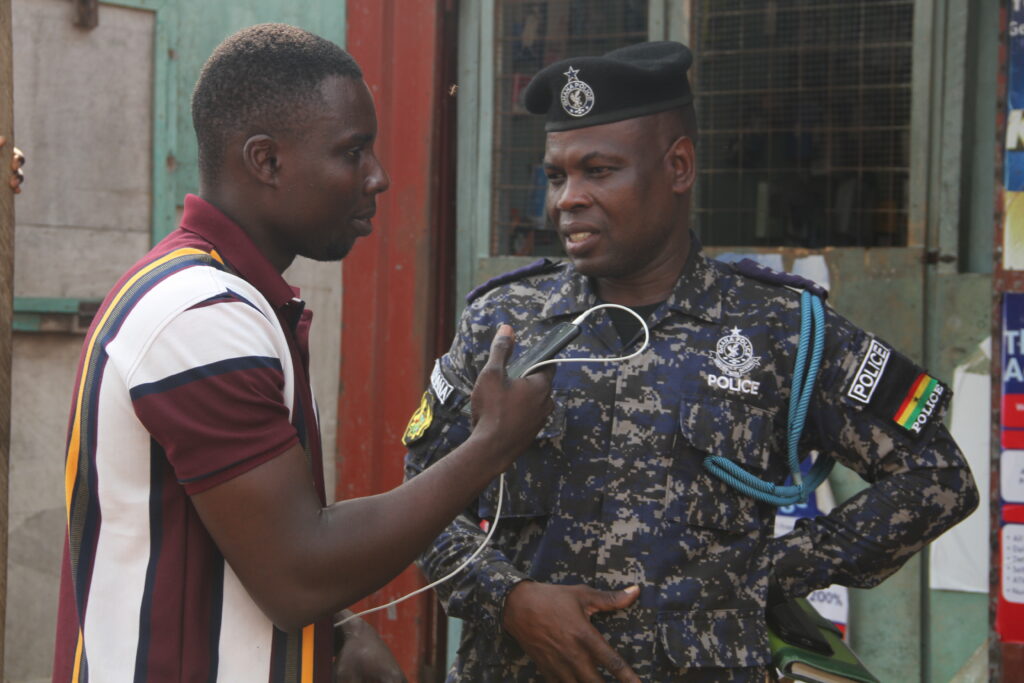
How can we discuss human rights and leave out the law enforcement agencies? Law enforcement agencies cannot be excluded from these discussions as they are critical in curbing this problem in the country. Chief Inspector Stephen Boateng, a police officer at Tema Newtown, stressed that Ghana law is against engaging children in fishing expeditions, and perpetrators will be dealt with when caught. He then mentioned that the police are doing their bit to protect the children from child labour and trafficking, including providing shelters for survivors of child labour and trafficking while working to locate the parents of these children. He cautioned all perpetrators to desist from such acts and encouraged community members to report cases for swift response.

Mr Theophilus Isaac Quaye, the Assembly member of Chorkor, shared that participating in the outside broadcast was an eye-opener. With his vision to rally the youth for positive change, he commended Curious Minds and its partners and encouraged it to be done regularly to drum home the agenda.
In wrapping up the discussions, Ishmael Ashitey, Secretary for the Canoe Owners Association and secretary to the Chief fisherman, called on stakeholders to assist them in building a fence to police those who troop in and out of the shore to hold perpetrators accountable for their actions and protect children. The assemblyman for Chorkor also recommended that community engagement should be undertaken continuously to educate the community about child labour and trafficking, punitive measures should be enforced to serve as a deterrent to potential perpetrators, and traditional leaders should be engaged in influencing the community and commit to implementing a policy that addresses child labour.
Ultimately, the fight against child labour is not a one-person one; all and sundry should put hands on deck and eradicate this canker once and for all.
By: Helena Amoah (Nana Aba Appiatewaa) & Joana Naa Adjeley Obeney
